Thousands of migrants have broken through police lines into Macedonia at the country’s border with Greece.
Macedonian police fired stun grenades for the second day running in response.
A huge number of migrants – many of them refugees from the war in Syria – has built up in recent days, after Macedonia sealed its southern border and declared a state of emergency.
Most wish to travel through Macedonia and Serbia to reach northern Europe, via Hungary.
Macedonian security forces had been expected to let several hundred migrants in at a time on Saturday to coincide with train departures north towards Serbia and the rest of Europe.
But some migrants broke through police lines, while others ran across fields away from the main crowd. Some people were reportedly injured as police tried to block their path.
Many have now been stuck in a rain-soaked area on the border for several days.
On Friday, migrants were beaten back with truncheons and riot shields by Macedonian security forces. Tear gas was fired.
Large numbers, including children, spent Friday night in the open, though some were allowed to board a train north.
Meanwhile, the UN refugee agency, the UNHCR, has expressed concern for “thousands of vulnerable refugees and migrants, especially women and children, now massed on the Greek side of the border amid deteriorating conditions”.
It urged Macedonia to “establish an orderly and protection-sensitive management of its borders” while appealing to Greece to “enhance registration and reception arrangements” on its side of the border.
The UNHCR also said it had been assured by Macedonia the border “will not be closed in the future”, but did not elaborate.
Greece itself has seen almost 160,000 people landing on its shores since January, the UN estimates, with 50,000 arriving in the past month alone.
Macedonia’s Foreign Minister Nikola Poposki told the BBC the situation had “dramatically deteriorated”.
He said: “In the last several days there has been a dramatic increase of inflow of migrants and we have reached numbers of 3,000 to 3,500 per day which obviously is not something a country of two million people and our resources can handle on a daily basis.
“We had to reinforce the control of illegal entry of Macedonian territory.”
Responding to criticism, Mr Poposki said: “Macedonia’s definitely not a place where they [migrants and refugees] have been mistreated.
Mr Poposki said all migrants had to register on entering Macedonia, and they had 72 hours to decide whether they would apply for asylum or pursue their route north.
Macedonia and its northern neighbour Serbia are not part of the European Union.
However Hungary, to the north of Serbia, is an EU member and is part of the Schengen area. This means that once in Hungary people can travel onwards throughout much of Europe (excluding Britain and Ireland) without needing to show documents at international borders.
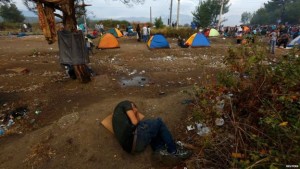

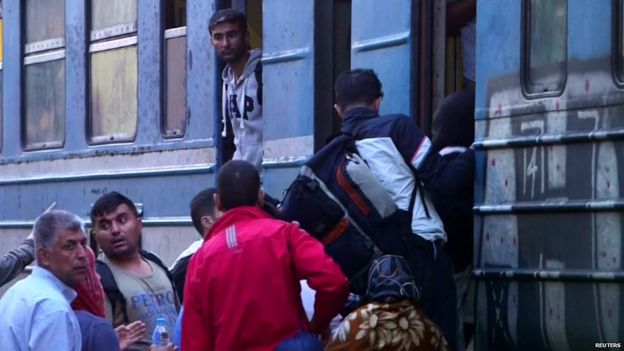


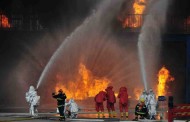
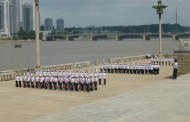
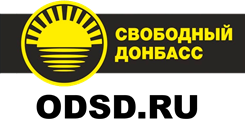
Recent Comments
Cevix in: Pobicie Polaków we Lwowie
Co za Kurwy z tych Ukraińców. Jestem Polakiem i według mnie Rosja nie ...
OlivierT in: Arrêté et menacé par le SBU, il quitte l’Ukraine
Merci pour ce témoignage très intéressant. Je rêve que les grands j ...
Luisa in: «Nous avons bien fait de tuer tous ces gens le 2 mai à Odessa»
Ça fait réfléchir... ...
Irfan in: Doctor Liza delivered to Moscow 14 chidlren from the DPR and LPR
my respect to her dedication ...
кира in: Телефоны «горячей линии» Центрального Республиканского банка ДНР
здравствуйте,подскажите,какой перевод из России я с могу получить в До ...